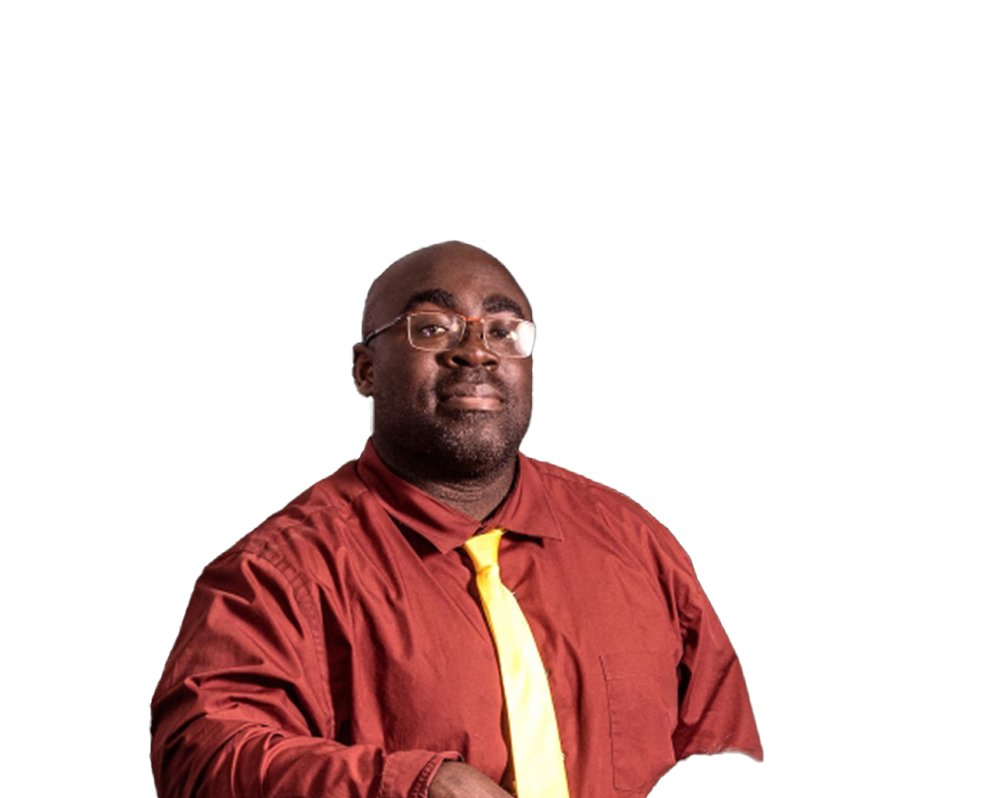
Edward Ofori, PhD, MSc
Assistant Professor of Biomechanics in College of Health Solutions
Principal Investigator at Arizona State University
Honors Faculty, Barrett Honors College
Affiliate, School of Biological and Health Systems Engineering
Affiliate, Center for Innovation in Healthy and Resilient Aging
Associate Faculty, Biodesign Institute & ASU-Banner Neurodegenerative Research Center
Edward Ofori, PhD, stands at the forefront of neuroscience and biomechanics, holding an Assistant Professor position at ASU within the College of Health Solutions, where he delves into the intricate relationship between brain structure and motor skills across various populations, including those with neurodegenerative diseases, aging individuals, and unique groups such as fighter pilots and people with Charcot-Marie-Tooth disease. His innovative research, incorporating advanced brain imaging techniques and digital walkway metrics, aims to unravel the mechanisms underpinning motor skill adaptation and performance, thereby paving the way for predictive and therapeutic advances in neurological health.
Dr. Ofori's dedication to academia and research is underpinned by various accolades, including the Butler Williams Award and UCLA NITP Training Program Award, highlighting his significant contributions to understanding and combating neurodegenerative diseases.
Through his leadership in the Pathomechanics & Neuroimaging Lab, Dr. Ofori is not just uncovering the secrets of motor resilience and health but is also shaping the future of neurological research and therapy, making a profound impact on how we perceive and treat disorders of the brain and motor system.
Positions and Education
Research Assistant Professor/Postdoc Research Asst., University of Florida
Advisors: Dr. David Vaillancourt, Dr. Steve DeKosky
2013-2018
PhD, Kinesiology, University of Illinois (Biomechanics & Motor Control)
Advisors: Dr. Les G. Carlton, Dr. Jacob J. Sosnoff
2009-2013
MS, Statistics, University of Illinois
2008-2010
MS, Kinesiology, University of Illinois
2005-2008
BS, Biomedical Engineering, University of Tennessee
Minor: Business Administration
Advisor: Dr. Jack Wasserman, PhD
2000-2005
-
Pair Up Cluster Group #5 (Spring 2023)
Black Men Brains Health Fellow
BRAINS Fellows Cohort (Fall 2022)
NIH Early Career Reviewer program, Center for Scientific Review (2020)
NIA Butler-Williams Scholar Recipient (2019)
NIH Loan Repayment Program Award (2018-2020)
1Florida Alzheimer’s Disease Research Center Fellow (2016-2017)
BJ & Eve Wilder Fellowship in Alzheimer’s Disease, The University of Florida (2015-2016)
UCLA Advanced Neuroimaging Training Program Fellowship, The University of California at Los Angeles (2016)
BJ & Eve Wilder Fellowship in Alzheimer’s Disease, The University of Florida (2015-2016)
McKnight Brain Institute Fellow, The University of Florida (2014-2015)
Travel Award, Progress in Motor Control, International Society of Motor Control (2011)
National Instruments Certified LabView Associated Developer (2010-2012)
Ronald E McNair Summer Fellowship, The University of Tennessee at Knoxville (2004)
African-American Achiever’s Scholarship, The University of Tennessee at Knoxville (2000-2004)
Departmental Engineering Scholarship, The University of Tennessee at Knoxville (2000-2002)
-
3D Electrocortical Activity of Upper Limb Movements: Velocity and Distance Effects. 1st Annual Motor Neuroscience Summit, University of Florida, Gainesville, USA. Nov 22, 2013.
Free-water imaging in Aging, Parkinson’s Disease, and Alzheimer’s Disease. Kinesiology and Community Health Colloquium series, University of Illinois at Urbana-Champaign, Urbana, IL, April 28, 2017.
Reflections from Pre-College Programs at Tennessee. Engineering Diversity Programs 45th Anniversary, UTK Tickle College, University of Tennessee at Knoxville, Knoxville, TN November 3, 2019
Diffusion Imaging Applications in Alzheimer’s Disease. Alumni Speaker Series, University of Tennessee at Knoxville, Knoxville, TN November 3, 2019
Multimodal Imaging in Neurodegenerative Disease, CHS Research Day 2019, Arizona State University, Phoenix, AZ February 14, 2019
Multimodal Imaging for early detection of decline in Alzheimer’s Disease, Coffee and Cognition Seminar, Tempe, AZ April 3, 2019
Multimodal imaging for neurodegenerative disorders, BME Seminar, SBSHE, Tempe, AZ, February 7, 2020
Diffusion MRI in Neurodegenerative diseases, Rocky Mountain MRI Mash-UP, Virtual , June 24, 2020
NASPSPA Symposium “Neuroimaging in Motor ControL”, 2020 (Canceled-Covid-19)
Improving Cognitive Capacity and. Movement & Preventing Neurodegeneration, Community Education Presentation, Sun Health, Surprise, AZ September 25, 2020
Multicultural Engineering Program Talk Session, Office of Diversity Programs, University of Tennessee, Knoxville, March 29, 2021 (Virtual Talk)
“Parkinson’s, Motor Disorders & the Community”, ASU TRiP Talk, April, 2021
“Progression Biomarkers for Types of Dementia” School of Health Professions, Kansas University Medical Center , April 2022
“Neurometric markers of gait variability and decline”, August 2022 UF College of Medicine.
“Neural Signatures to Motor Sequences: Diagnosing Alzheimer’s and Parkinson’s”-Behavioral Neuroscience and Comparative Psychology , Sept. 27 2023
"For Undergraduates: What Comes Next?". SFN Career Development, November 2023
-
Leader of the CHS Mulitmodal Imaging Affinity Network (2022-present
African and African American Faculty and Staff Association (2019-present)
Member of Justice, Equity, Diversity & Inclusion (JEDI) Council (2020-2023)
Frontiers in Neurology-Guest Associate Editor for Neuroimaging in Parkinson’s Disease and Parkinsonism,2019-2023
Frontiers in Neurology-Guest Associate Editor for Neuroimaging in of Non-Motor Deficits in Movement Disorders,2021-2023
Associate Editor in Brain Imaging and Stimulation, Frontiers in Human Neuroscience, 2020-present
Associate Editor in Movement Disorders, Frontiers in Neurology, 2018-present
Editorial Board, Brain Sciences, 2024-present
-
Named 10 times to the incomplete list of teachers ranked excellent by students 2006-2012. Student course evaluations from students normally range from 4.4 to 4.9 out of 5.0 (University of Illinois). (2005-2011)
KIN 412/512: Biomechanics of the Skeletal System (Undergraduate/Graduate)
KIN 540: Sports Biomechanics (Graduate)
HCD 300: Biostatistics (Undergraduate)
HCD 501: Biostatistics (Graduate)
“The biomechanics behind bone health” (2020-present): University of Arizona, College of Medicine, Musculoskeletal and Neuroscience
“The biomechanics behind muscles, tendons, and ligaments (2020-present): University of Arizona College of Medicine, Musculoskeletal and Neuroscience